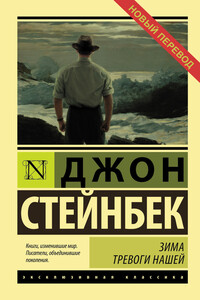Once there was a war | страница 54
Workmen were digging a great, long, common grave for the dead. Veronica Lake had flared up with the quick flash of burning film and only the reels she was wound on were left. And in the houses in the morning people were just beginning to be aware enough to cry. It was very quiet in the streets.
At a bar a tired doctor got a drink before he went to bed. His eyes were ringed with red sorrow and his hand shook as he lifted the whiskey to his lips.
DIRECTED UNDERSTANDING
LONDON, July 19, 1943—International amity, good fellowship, and mutual understanding between the British and Americans often reaches a pitch where war between the two seems very close. This is usually directed understanding, and it gives rise to some very silly situations.
Directed understanding and tolerance ordinarily begin with generalizations. Our troops approaching England are told in pamphlets what the British are like, where they are tender and where hard, what words, innocent at home, are harsh and ugly on the British ear. This has much the same effect as telling a friend, “You must meet Jones—wonderful fellow. You two will get along.” With a start like that, Jones has got two strikes on him before you ever meet him. He has to live down being a charming fellow before you can tolerate him. In this case it is even worse, because the British are told that they will like us when they just get to know us. The result is that the two come together like strange dogs, each one looking for trouble. It takes a long time to live down this kind of understanding.
The second phase of getting along is carried on in innumerable attempts to describe each other. The British are so and so. The Americans are so and so. The British are just like other people only more so. The Americans are boasters who love money. This love of money is, of course, unique with Americans. Every other people detests money. The Americans are fine, sturdy people. The British are fine, sturdy people. This is obviously a lie. There are good ones and stinkers on both sides. Setting them up doesn’t do any good. Just about the time you get a liking and a respect for a number of Englishmen, someone comes along and tells you about the English and you have to start from scratch again. This same thing, undoubtedly, happens to the English too.
The third little pitfall concerns the qualities of the fighting men. A big, rangy old mountain boy comes rolling down the street with his knuckles just barely clearing the pavement, and right behind is a Guardsman, shoulders back, chin up, nine buttons glowing like mad. Immediately the comparison is made. One is a fine soldier and the other is a lout. The fact of the matter is that they are both covering ground at the same rate, and each one could probably cover the same ground with a full pack. And then, having learned about soldierly qualities, you see a little twist-faced, wide-shouldered Tommy who walks sideways like a crab, and you realize that he’s as good a fighting man as the world had produced, but on his record, not on his soldierly bearing.




